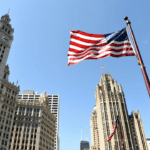
These rules are part of something called the EU Digital Services Act (DSA), and they’re here to make sure that companies play by the rules. If a company doesn’t follow these rules, they could end up having to pay a lot of money.
These rules are especially strict for nineteen really important platforms, like big names such as Facebook and TikTok. These platforms have to take extra steps to keep young users safe and to prevent any attempts to mess with important things like elections.
In simple terms, it’s like these companies are being told, “Hey, you need to step up and make sure your users are okay, especially the younger ones. And don’t even think about causing trouble during elections!”
In a big move to look out for the people who use their services, well-known tech companies and search engines are now required to follow new rules from the EU. These rules are designed to make sure users are kept safe and taken care of.
It’s a bit like a teacher setting some clear rules in the classroom to make sure everyone behaves well and learns without any problems. In this case, the EU is playing the role of the teacher, making sure these big tech companies don’t misbehave and look after their users properly.
As the UK Online Safety Bill continues its journey through the legal process, the EU’s Digital Services Act officially came into effect on November 16, 2022. During this time, companies were given the chance to make sure they’re following the new rules properly.
Then, on April 25, something big happened. A list was revealed that included some really huge online platforms. These platforms have a lot of people using them, more than 45 million in the EU alone! And these platforms were told that they have to follow the strictest rules. Some of the big names on this list were Alibaba, AliExpress, Amazon Store, Apple App Store, Booking.com, Google Play, Google Maps, Google Shopping, Instagram, LinkedIn, Pinterest, Snapchat, TikTok, X (which used to be called Twitter), Wikipedia, YouTube, and Zalando. Even the big search engines, Google and Bing, had to follow these rules too. It’s like everyone had to step up and make sure they’re doing things right.
These special platforms had a timeframe of four months to make sure they were following the new rules correctly. But for smaller tech companies, they got a bit more time. They had until the next year to get everything right.
If these platforms didn’t follow the rules, they could end up having to pay fines. And these fines could be a big chunk of their earnings, up to 6%! That’s like a hefty penalty for not playing by the rules. And in serious cases, their services could even be temporarily stopped.
The new rules also brought some extra responsibilities for these big platforms and search engines. They now have to really think about any potential problems they might cause. They have to write down their thoughts about these issues and figure out ways to make them better. This covers all sorts of possible problems, like bad stuff on their platforms, making sure people’s rights are respected (like freedom of speech and being treated fairly as consumers), and even making sure things are secure during important events like elections.
The way they used to show ads to kids, based on what they know about them, is no longer allowed. And now, these platforms also have to tell the people in charge about how their behind-the-scenes algorithms work. These are the secret formulas that decide what posts and ads people see. Now, these formulas are under a spotlight, and even outside experts get to take a look. Plus, these platforms need to work together with independent researchers to share important data.
It’s like these platforms are being told, “You have to think about the problems you might cause and come up with plans to fix them. And don’t hide anything – show us how your secret formulas work and let others check them too.”
The folks in the industry have really made a big effort to make sure they’re following the new rules. Companies like Meta and TikTok, for example, proudly announced that more than a thousand people from all parts of their organizations have been working really hard to make sure they’re doing things the right way according to the new rules.
A lot of changes have already been put into place. Some important changes are all about making ads and content more personal for users. Here are a few examples:
- TikTok recently decided to stop showing ads that are based on what young people in Europe do online. This change started in July.
- Meta, which is the company behind Facebook and Instagram, made a big change in February. They stopped showing ads that are based on what young users aged 13-17 do on platforms like Facebook and Instagram.
- Facebook and Instagram did something cool too. They gave users in the UK and Europe a choice. These users can now choose to only see Stories and Reels from people they follow, and these will be shown in the order they were posted.
- Snapchat also joined in by making a similar change in the UK and Europe. They stopped showing personalized ads to young users aged 13-17 and started creating a collection of ads that are suitable for the EU.
Even Google got on board with a promise. They said they would make it easier for people who want to learn more about how things work on Google Search, YouTube, Google Maps, Google Play, and Shopping. It’s like they’re opening the door to let people see behind the scenes and understand how things function better.
But not all companies were quick to share all the changes they’ve made when the BBC asked them. X, which used to be called Twitter, simply said they’re making sure they’re keeping up with their plans to meet the rules.
Two big retailers, Amazon and Zalando, decided to take things a step further. They actually went to court to challenge the label of being “very large online platforms.” Amazon thinks it’s not the biggest online store in any EU country it operates in. However, Amazon hasn’t just been sitting around. They’ve actually been taking steps to follow the DSA, like creating a way for people to report anything that might be against the rules on their platform. Zalando, on the other hand, made it clear that they’re committed to sticking to the rules set out in the act.
Wikipedia also didn’t stay silent. They made some changes in response to the DSA. The folks at the Wikimedia Foundation, who look after Wikipedia, want everyone to know that these changes won’t cause a big impact on how users experience the platform daily. They actually liked the approach of the DSA, saying it’s better compared to the online safety bill in the UK. However, they also talked about some challenges they’re facing in fully following the UK’s rules.
As Phil Bradley-Schmieg, who is a legal advisor at the Wikimedia Foundation, said, “We really hope that the people who make the rules will look at the DSA as an example, understand how diverse the internet is, and make sure online projects stay safe, open, and free.” The introduction of the DSA is a pretty important step in how the digital world is governed, making sure users are safe and companies are held accountable.













